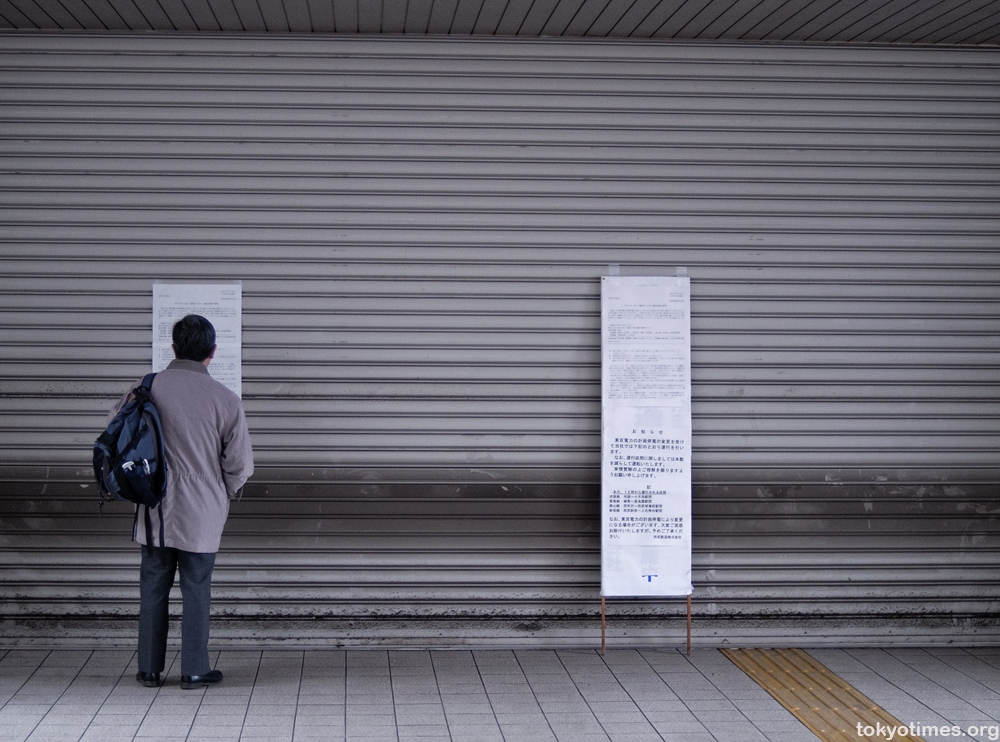Kogi Train Passengers Face Delays Following Mechanical Failure

Table of Contents
Extent of the Delays and Affected Passengers
The mechanical failure on the Kogi train line led to substantial travel disruption, affecting hundreds of passengers. Delays ranged from several hours to an entire day, depending on the specific train route and the time of the failure. The incident primarily impacted the Lokoja-Abuja and Lokoja-Itakpe lines, causing significant inconvenience for commuters traveling for work, school, and other essential purposes. The disruption disproportionately affected daily commuters, students heading to universities, and market traders relying on the train for transportation of goods.
- Estimated number of passengers delayed: Over 500 passengers are estimated to have experienced delays.
- Specific train routes affected: The Lokoja-Abuja and Lokoja-Itakpe lines were the most significantly impacted.
- Duration of delays: Delays ranged from 3 to 24 hours, with some passengers stranded at stations for extended periods.
- Reports of passenger frustration and inconvenience: Passengers reported significant frustration and inconvenience, with many expressing concerns about the lack of communication and support from railway authorities during the delay.
Cause of the Mechanical Failure
While investigations are ongoing, preliminary reports suggest the mechanical failure on the Kogi train was likely due to a combination of factors. Aged rolling stock and inadequate maintenance are believed to be primary contributors. The precise nature of the malfunction remains unclear, but initial assessments point towards a possible engine failure, potentially exacerbated by a lack of timely preventative maintenance. This highlights a broader concern about the state of the Kogi railway infrastructure and the need for substantial investment in upgrades and regular maintenance.
- Preliminary findings on the cause of the failure: Engine failure suspected, potentially linked to inadequate maintenance.
- Potential contributing factors: Aging infrastructure, insufficient maintenance schedules, and potentially a lack of investment in newer, more reliable rolling stock.
- Statements from railway officials regarding the cause: Railway officials have stated that a full investigation is underway to determine the exact cause of the failure and prevent future occurrences.
Response and Recovery Efforts
Following the mechanical failure, railway authorities initiated a multi-pronged response to mitigate the impact on passengers and restore services. Emergency repair crews were immediately dispatched to the affected location to assess the damage and initiate repairs. While alternative transportation options were limited, the railway company attempted to communicate with stranded passengers, providing updates and coordinating efforts to ensure their safety and well-being. Communication efforts included text alerts, social media updates, and announcements made at nearby stations.
- Steps taken to repair the mechanical failure: Emergency repair crews worked around the clock to restore the train to operational status.
- Provision of alternative transportation options: Limited options were available; efforts were made to coordinate with bus companies to provide some form of alternative transport.
- Communication strategies employed to inform passengers: Updates were disseminated through text messages, social media channels, and station announcements.
- Estimated time for full service resumption: Service was restored approximately 36 hours after the initial failure.
Passenger Reactions and Social Media Response
Passenger reactions to the Kogi train delays ranged from frustration and anger to resignation and concern. Many took to social media platforms such as Twitter and Facebook to express their discontent, sharing their experiences with long delays and lack of information. Several hashtags related to the incident trended, highlighting the widespread public attention and concern. The generally negative sentiment underscores the need for improved communication and more reliable train services in Kogi State.
- Examples of passenger comments and complaints: Passengers expressed concerns about the lack of timely communication, inadequate alternative transport options, and the overall inconvenience caused by the delays.
- Social media trends and hashtags related to the incident: #KogiTrainDelays, #KogiTransportCrisis, and similar hashtags gained traction.
- Public opinion regarding the railway's response: Public opinion was generally negative, with many criticizing the response time and lack of effective communication from railway authorities.
Conclusion
The Kogi train delays resulting from a mechanical failure caused significant disruption to commuters, highlighting weaknesses in the state's railway infrastructure and the need for improved maintenance and communication strategies. The incident affected hundreds of passengers, leading to widespread frustration and concerns about the reliability of the Kogi train service. While repair efforts ultimately restored services, the event underscores the urgent need for investment in upgrading the existing infrastructure and ensuring the implementation of effective preventative maintenance programs. Stay updated on the latest information regarding Kogi train services and report any further issues to ensure reliable Kogi train transportation for all.

Featured Posts
-
 Actors 100 000 Donation Solves 1 Million Debt Crisis
May 01, 2025
Actors 100 000 Donation Solves 1 Million Debt Crisis
May 01, 2025 -
 Bof A On Stock Market Valuations Reasons For Investor Optimism
May 01, 2025
Bof A On Stock Market Valuations Reasons For Investor Optimism
May 01, 2025 -
 Little Coffees Successful Dragons Den Pitch Four Investment Offers
May 01, 2025
Little Coffees Successful Dragons Den Pitch Four Investment Offers
May 01, 2025 -
 Bowen Yangs Snl Struggle The Jd Vance Role And His Plea To Lorne Michaels
May 01, 2025
Bowen Yangs Snl Struggle The Jd Vance Role And His Plea To Lorne Michaels
May 01, 2025 -
 Friday Night Nba Celtics Vs Cavaliers Predictions And Best Bets
May 01, 2025
Friday Night Nba Celtics Vs Cavaliers Predictions And Best Bets
May 01, 2025
